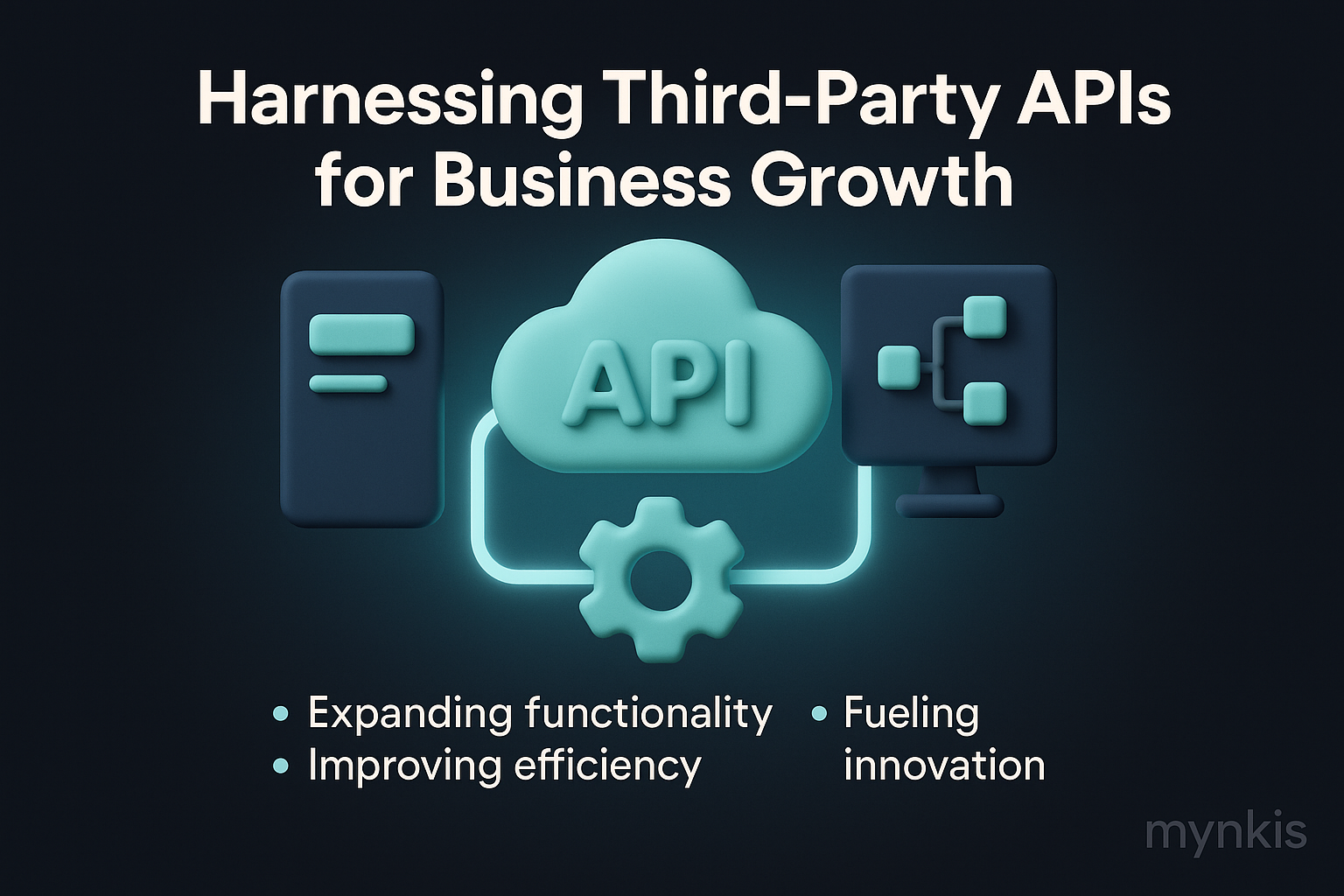Schedule a Demo
In my work with operations managers across various industries, I've seen firsthand how third-party APIs can revolutionize a business. From streamlining operations to enhancing customer experience, these APIs integrate seamlessly into custom software builds to propel a company's growth. For businesses aiming to establish a robust online presence, APIs offer the flexibility to tailor solutions that are both powerful and uniquely suited to their needs.
Third-party APIs can transform a simple website into an interactive platform that drives organic growth. By integrating APIs, businesses can enhance their site with real-time data, such as weather updates for a travel agency or stock prices for financial services. These integrations not only add value to the user experience but also boost SEO by keeping content fresh and relevant. The key is to choose APIs that align with the website's objectives and user expectations.
Let me share a couple of instances where API integration has led to significant business improvements. A local restaurant used a reservation API to allow customers to book tables directly from their website, increasing bookings by 30%. Similarly, a small e-commerce store integrated a payment gateway API that not only improved checkout speed but also increased customer trust and, subsequently, conversion rates. These real-world examples illustrate how carefully chosen API integrations can drive measurable success.
Integrating third-party APIs, while transformative, isn't without its challenges. Technical complexity and the need for regular maintenance are considerations that must be addressed from the outset. Yet, with the right development team and strategic planning, these hurdles can be navigated effectively. It's critical to thoroughly evaluate potential APIs, considering factors like documentation quality, reliability, and scalability, to ensure a seamless integration that truly benefits the business.
One of the most impactful ways APIs can drive your business forward is through their role in SEO. APIs like Google Maps or social media APIs can help improve your site's SEO by making your content more dynamic and engaging. I've seen websites that effectively use APIs to pull in fresh content achieve higher search engine rankings and, as a result, more organic traffic. This growth can be particularly vital for small businesses looking to expand their reach cost-effectively.
Selecting the right APIs involves understanding your business goals and user needs. Whether you're looking to enhance your customer experience with real-time data or to streamline internal processes, the market offers an extensive range of APIs. In my work, I often advise clients to focus on those APIs that not only meet current needs but are also scalable for future growth. Consider popular choices like Stripe for payments or Twilio for communication to boost your website's functionality.
The landscape of API integration is continually evolving, driven by advancements in technology and increasing demand for seamless, integrated digital solutions. As a business owner, staying informed about these trends can give you a competitive edge. For instance, the rise of serverless architectures and microservices can provide more flexibility in how APIs are integrated into your website. By keeping a pulse on these developments, businesses can plan for future integrations that will continue to drive growth.
Security is paramount when integrating third-party APIs into your custom software. Each API brings its own set of security concerns, from data privacy to potential vulnerabilities in the API itself. It's crucial to implement robust security measures, such as API key management and authentication protocols, to safeguard your business and your users' data. Consulting with cybersecurity experts can provide additional layers of protection and ensure compliance with industry standards.
To truly harness the power of third-party APIs, it's essential to measure their impact on your business. Metrics such as user engagement, conversion rates, and system efficiency can provide insights into how well the APIs are performing. In my experience, businesses that regularly assess these metrics can fine-tune their strategies, ensuring that their API integrations continue to align with evolving business goals and user needs.
When integrating third-party APIs, it's crucial to consider both the cost and the value they bring. While some APIs may offer free tiers, others require substantial investments. Yet, the real value lies in how these integrations can drive business growth and enhance user experience. I often advise clients to assess the ROI of each API, considering not just the initial integration cost but also the long-term benefits in terms of efficiency, customer satisfaction, and increased revenue.
One of the most compelling benefits of integrating third-party APIs is the ability to deliver personalized experiences to your users. From recommendation engines to personalized marketing, APIs can analyze user data to tailor content and interactions. This level of personalization can significantly boost user engagement and loyalty, factors that are critical for business growth in today's competitive digital marketplace.
APIs can also empower businesses with the tools for data-driven decision-making. By integrating analytics and reporting APIs, businesses can gain real-time insights into their operations and customer behaviors. This data can inform strategic decisions, helping businesses to optimize their marketing efforts, improve product offerings, and ultimately drive growth through informed, data-backed choices.
Lastly, integrating third-party APIs into your software can serve as a catalyst for innovation within your business. By leveraging the functionalities of these APIs, you open up new possibilities for product development and service enhancement. This approach not only differentiates your business in the market but also fosters a culture of innovation, which is essential for long-term growth and success.
